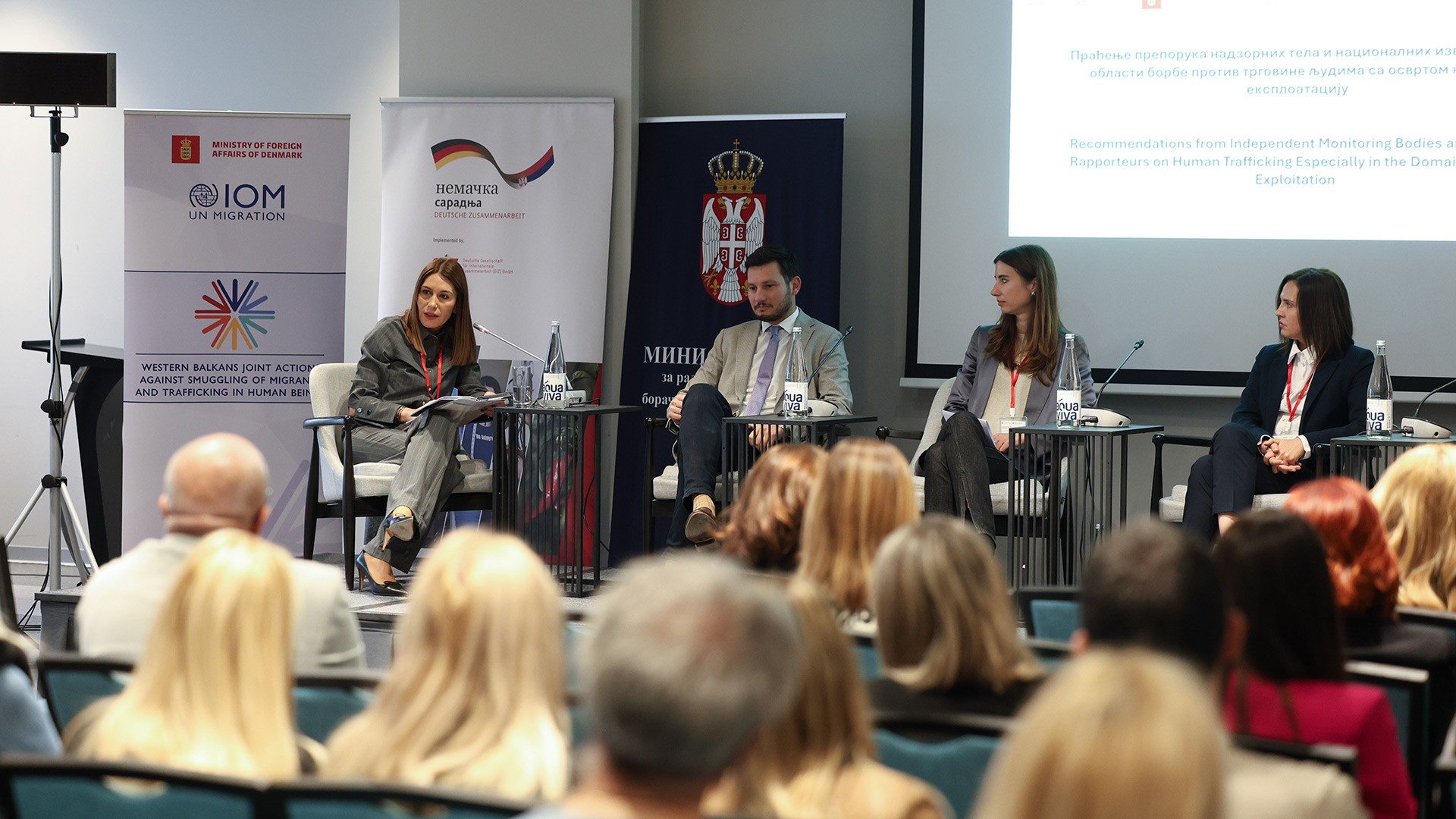Economic migrants make up the majority of migration we see today. With the ever-more interconnected nature of the global economy, international labour migration is set to play an increasingly important role. To maximize the benefits of migration and minimize the harm, it is essential to implement comprehensive policies regulating this area. The German Development Cooperation implemented by Deutsche Gesellschaft für Internationale Gesellschaft (GIZ) GmbH is a crucial partner to the governments in the Western Balkans on this journey, and it closely collaborates with partners from the International Organization for Migration (IOM) to ensure safe and rights-based global migration.
The Ministry of Labour, Employment, Veteran and Social Affairs and the Center for the Protection of Victims of Human Trafficking, with the support of German Development Cooperation implemented by GIZ, as well as the support of IOM, organized a two-day regional conference in Belgrade entitled “Liberalization of Access to the Labour Market: Potential for Regular Migration and Prevention of Risks Related to Precarious Employment and Human Trafficking”.
The GIZ Country Director in Serbia, Daniela Funke, stated that the conference is dedicated to critical points related to the important topic of migration. “The focus is on defining directions for improving national systems, strengthening regional cooperation by exchanging experiences and knowledge among key stakeholders, and dealing with the importance and protection of human rights. We decided to address migration from all angles to ensure that policies and practices do not respond solely to short-term challenges,” Funke said.
The Western Balkans are increasingly seeking to attract migrant workers in search of opportunities, with a 74% increase in the number of work permits issued to foreign workers between 2022 and 2023 alone. In Serbia, more than 50,000 work permits were issued to foreign workers in 2023 (an increase of 48% compared to 2022 and 120% compared to 2021). In Bosnia and Herzegovina, 4,586 work permits were issued in 2023, compared to 3,780 in 2022 (+21%). In Montenegro, 29,319 temporary residence and work permits were issued in 2022, mainly to seasonal workers.
The Special Advisor to the Minister in the Ministry of Labour, Employment, Veteran and Social Affairs of the Republic of Serbia, Srdjan Barać, said that regular migration represents one of the most efficient ways to fill the labour shortage in specific sectors of the economy, and can contribute to economic growth, innovation, and cultural enrichment. “However, we need to take advantage of this opportunity in an appropriate manner; otherwise, there is a risk of an increase in the shadow economy and worker exploitation or, in the worst case, human trafficking,” Barać said, emphasizing that states, institutions, and civil society organizations must cooperate in developing mechanisms for the prevention of human trafficking and protection of vulnerable people.
The Ombudsman and National Rapporteur on Human Trafficking in the Republic of Serbia, Zoran Pašalić, highlighted that the institution he led played a serious and difficult role – to provide periodic and annual reports in the area of protection and human trafficking. He stressed that he would make the necessary effort to ensure accurate reports.
The International Organization for Migration (IOM) Western Balkans Senior Programme Coordinator, Donatella Bradić, said that the data on the increase in the number of work permits issued to foreign nationals in the Western Balkans should not be neglected. “We have a practice that will help us utilize the transformative potential of migration. The benefits of well-managed migration can be enormous and accelerate progress towards sustainable development goals, in line with the promise that no one will be left behind,” Bradić conveyed.
Representatives from relevant governmental institutions, prosecutors’ offices, courts, independent institutions, international organizations, civil society organizations, and academia from Bosnia and Herzegovina, Montenegro, North Macedonia, and the Republic of Serbia exchanged their knowledge and experiences in the field of migration during this two-day conference.








